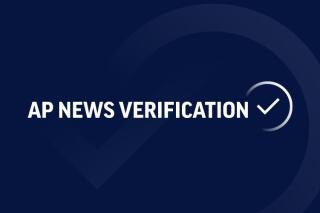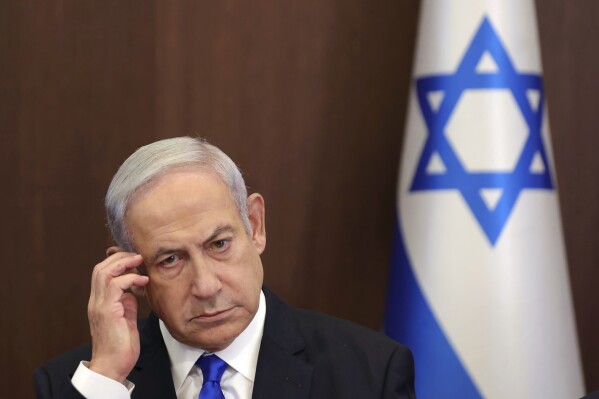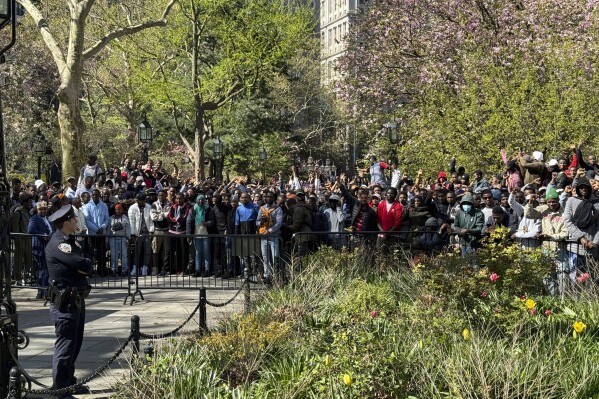WHO ‘pandemic treaty’ draft doesn’t sign over US sovereignty

As the World Health Organization meets on Monday to discuss the first draft of the treaty, social media users are misrepresenting the scope of the document to falsely suggest signing onto it would cede U.S. rights to the international body.
CLAIM: A legally-binding World Health Organization “pandemic treaty” will give the organization the authority to control U.S. policies during a pandemic, including those on vaccines, lockdowns, school closures and more.
AP’S ASSESSMENT: False. The voluntary treaty, which is in draft form and is still far away from ratification, does not overrule any nation’s ability to pass individual pandemic-related policies, multiple experts, including one involved in the draft process, told The Associated Press. The treaty lays out broad recommendations related to international cooperation on pandemic prevention, preparedness and response. Nowhere in the 30-page document are lockdowns, closures or specific citizen surveillance systems mentioned.
THE FACTS: As the WHO meets on Monday to discuss the first draft of the treaty, social media users are misrepresenting the scope of the document to suggest signing onto it would cede U.S. rights to the international body.
“Biden is about to give the China-controlled W.H.O. power to control the United States. This will cover lockdowns, supply chains, surveillance, and ‘false news’,” claimed one Instagram post referring to the treaty draft.
Conservative blogs and commentators also shared misleading information about what kind of actions the treaty would trigger.
“The Biden administration is in the process of finalizing a deal that would give the WHO near-total authority to dictate America’s policies during a pandemic,” read the caption of an Instagram post by The Epoch Times, which continued: “This includes vaccine policies, lockdown policies, school closure policies, the contact tracing of U.S. citizens, and even the monitoring of online speech if that speech goes against the official narrative.”
But this interpretation of what the treaty would do is incorrect, multiple experts agree.
“These claims are utterly false,” said Lawrence Gostin, a Georgetown University law professor and director of the university’s WHO Collaborating Center on National and Global Health Law. He’s been involved in the treaty’s draft process.
“The United States retains sovereignty to set its own domestic public health policies,” he added. “WHO does not gain any power to override domestic policy decisions.”
The draft, also called a “zero draft,” is designed to protect the world from future pandemics, according to the WHO. Beginning Feb. 27, the World Health Assembly’s intergovernmental negotiating body will have a chance to review the initial document. The first reading of the draft will also be open to all 194 WHO member states.
The text lays out a vision for building greater equity and effectiveness in pandemic prevention, preparedness and response across the globe through international cooperation. It encourages parties to develop a mechanism to ensure equitable allocation of pandemic-related products such as vaccines and tests while committing to quick and transparent reporting of clinical research and trial results, sharing of information on emerging health threats and recognition of WHO as the coordination authority on international health work
However, it does not overrule any nations’ individual health or domestic policies, the U.S. Department of Health and Human Services confirmed in a statement to the AP.
“It is false to claim that the World Health Organization has now, or will have by virtue of these activities, any authority to direct U.S. health policy or national health emergency response actions,” the agency wrote. “The WHO has no such enforcement mechanisms, and its non-binding recommendations to member states are just that: non-binding. Any associated actions at the national level will remain reserved to sovereign states, including the United States.”
In fact, the first line of the draft states: “Reaffirming the principle of sovereignty of States Parties in addressing public health matters, notably pandemic prevention, preparedness, response and health systems recovery.”
And a separate section of the draft labeled “Sovereignty” clearly says that states have “the sovereign right to determine and manage their approach to public health, notably pandemic prevention, preparedness, response and recovery of health systems, pursuant to their own policies and legislation, provided that activities within their jurisdiction or control do not cause damage to their peoples and other countries.”
Nowhere in the 30-page document are the words lockdown, closures, contact tracing or online speech mentioned, nor are mentions of specific citizen surveillance systems.
Further, while the treaty, if ratified, would be considered a legally-binding document, there are effectively no legal consequences for signatories who fail to adhere to it or violate its terms, experts said. The WHO has no enforcement power to levy consequences over the document, other than largely symbolic actions akin to an international “slap on the wrist,” said Dr. David Freedman, professor emeritus of infectious diseases at the University of Alabama at Birmingham, who also served on a separate WHO committee of experts for a decade.
Gostin agreed that there are no compliance mechanisms written into the draft, and the provisions are about international obligations, not domestic policy. Most of the treaty language is framed as things the signatories “should” do, rather than “must” do, he added.
Freedman also emphasized that the draft does not use “mandatory language,” but rather encouragements or recommendations.
“It should be noted that the US is far from agreeing to sign the Pandemic Treaty, and it will take many months, or longer, even to negotiate a text,” Gostin said, adding, “Even if the United States signs the treaty, it would not empower WHO to make any public health decisions in the US or in any other country.”
Dr. James LeDuc, a professor at the University of Texas Medical Branch who served on a separate WHO committee that assessed parts of the international COVID-19 response, noted that the draft would likely undergo many revisions over what could be a multi-year process, if passed at all.
“Hopefully the draft zero of the proposed treaty will encourage a robust international dialogue; however, reaching agreement among 194 independent nations will likely be a very long process,” he wrote in an email.
___
This is part of AP’s effort to address widely shared misinformation, including work with outside companies and organizations to add factual context to misleading content that is circulating online. Learn more about fact-checking at AP.


